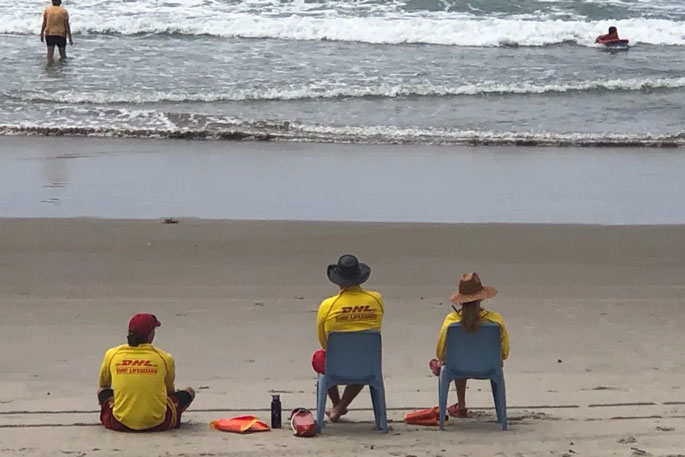Deaths by drowning are on track to be the lowest since 2018, but advocates are still urging people to stay vigilant around the water.
Water Safety New Zealand numbers show there have been 61 drownings so far in 2024.
That is 17 fewer than last year, and 22 fewer than the 10-year average.
Chief executive Daniel Gerrard said the reduction was something to celebrate, but the numbers were expected to increase before the year is over.
"It is down 26 percent year to date, based on the 10 year average, but the predictive modelling is still saying there's likely to be 70 fatalities in total for the year. So we're still looking at potentially a fatality, one every three days [until the end of the year]."
Gerrard said people needed to remain vigilant and keep safety at front of mind when heading out to beaches and rivers this summer.
The drop in drowning deaths shows the impact of good messaging and education, he said, leading to actions like keeping small kids close and choosing safe places to swim.
"If you're not a particularly good swimmer, going for a swimmer at Piha beach is perhaps the not the best choice. And it's things like that we're starting to see more and more."
Gerrard said the efforts put into education and water skills training for children had also made a difference, with drownings in under 24 year olds at record lows.
"We're giving more education opportunities to our little people, so little New Zealanders have more skills and knowledge than they ever have," he said.
"We've been spending - and I'm talking about the entire water safety community - has really been focusing on providing skills and knowledge to young New Zealanders. What that's now translating to is those primary school aged kids are much safer, and the numbers are representing that."
The drowning statistics still show the same trouble areas, however, with men making up the majority of drownings, and many happening at unpatrolled beaches, or involving alcohol.
"This is a male problem in New Zealand - 85 percent of the fatalities are male. It's still around going to the beach and getting in trouble in some of those environments - and often they are unpatrolled beaches."
He encouraged New Zealanders to make smarter swimming decisions this summer, like going to a patrolled beach, and said people should stay out of the water if they were not sure it was safe.



0 comments
Leave a Comment
You must be logged in to make a comment.